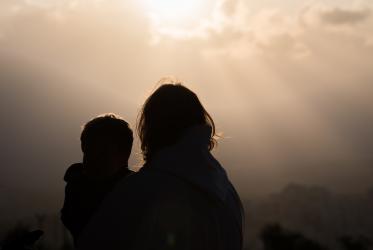Public comment by the Rev. Dr Olav Fykse Tveit
General secretary of the World Council of Churches
A lifetime after their tragedy, the finest tribute to the destroyed cities of Hiroshima and Nagasaki still lies ahead. It is that we achieve the survivors’ hope for all humanity: “No more Hiroshimas. No more Nagasakis.” The God of life calls all of us to take up their tireless cry and make certain that a Hiroshima or Nagasaki bombing can never happen again. This year’s anniversary needs renewed commitment from the entire world.
Current events in Northeast Asia dramatize how much the region and the world still live in the shadow of Hiroshima-style mass destruction. Churches from 140 countries will gather soon in South Korea for the 10th Assembly of the World Council of Churches under the theme “God of Life, Lead Us to Justice and Peace”. Nagasaki and Hiroshima lie just across a strait from Busan, our meeting place. Our hosts will explain the legacy of annihilation including the fate of more than 40,000 Koreans in the two Japanese cities when the atomic bombs were dropped in August 1945.
That legacy today has two old Cold War rivals – North Korea and the USA – still brandishing nuclear weapons, missiles and bombers over the Korean peninsula. The dangerous recent displays demonstrate the failure on both sides to learn from Hiroshima and from war itself.
The legacy includes the recent anniversary of the Korean War. Sixty years after a ceasefire, none of the antagonists have a peace treaty. But every country in Northeast Asia has its own nuclear arms or accepts protection from US nuclear weapons. As Buddhist, Christian and civil society organizations in the region have long advocated, the Korean Peninsula must be freed of nuclear weapons as a cornerstone for any durable peace.
Instead, the region is being subjected to new increases in the already massive US military deployments in East Asia and the Pacific. US arms sales to China’s neighbours, and a military build-up in China, are fuelling global arms production. In the region old disputes over tiny islands are sharpening.
On this year’s atom bomb anniversary a central pillar of peace in East Asia is in danger. Japan’s new government appears eager to weaken or drop the peace clause in the national constitution. This historic post-1945 commitment forbids Japan to wage war and limits its military forces. The clause is widely appreciated by peace loving people in Japan and its neighbours. Christians and Buddhists in North East Asia insist that it not be changed.
Despite the region’s shaky nuclear instability, Japanese government officials are also airing speculation that Japan could consider developing nuclear weapons for itself. It is hard to imagine a more pointed dismissal of the lessons of 1945.
There is also fresh proof of the dangers of nuclear radiation to colour the atom-bomb observances this year. As churches and others work to help the survivors of the Fukushima disaster, the Japanese government has confirmed that massive quantities of radioactive water are seeping into the ocean from the stricken plants each day. Radiation in the area will keep tens of thousands of former residents from ever returning to their homes.
Thankfully, with this anniversary, honest assessments of the grave humanitarian consequences of nuclear weapons are finally bringing new hope in many countries. Some 80 governments recently issued a joint call to all governments that no nuclear weapon should ever be used again under any circumstances. States that have nuclear weapons, and their allies, are finally being called to greater account.
In an era of increasing global consciousness the abiding lesson of August 1945 is one we can recognize. God’s gift of life is precious beyond measure. We must protect life for the good of all people. Hiroshima and Nagasaki must never happen again.



